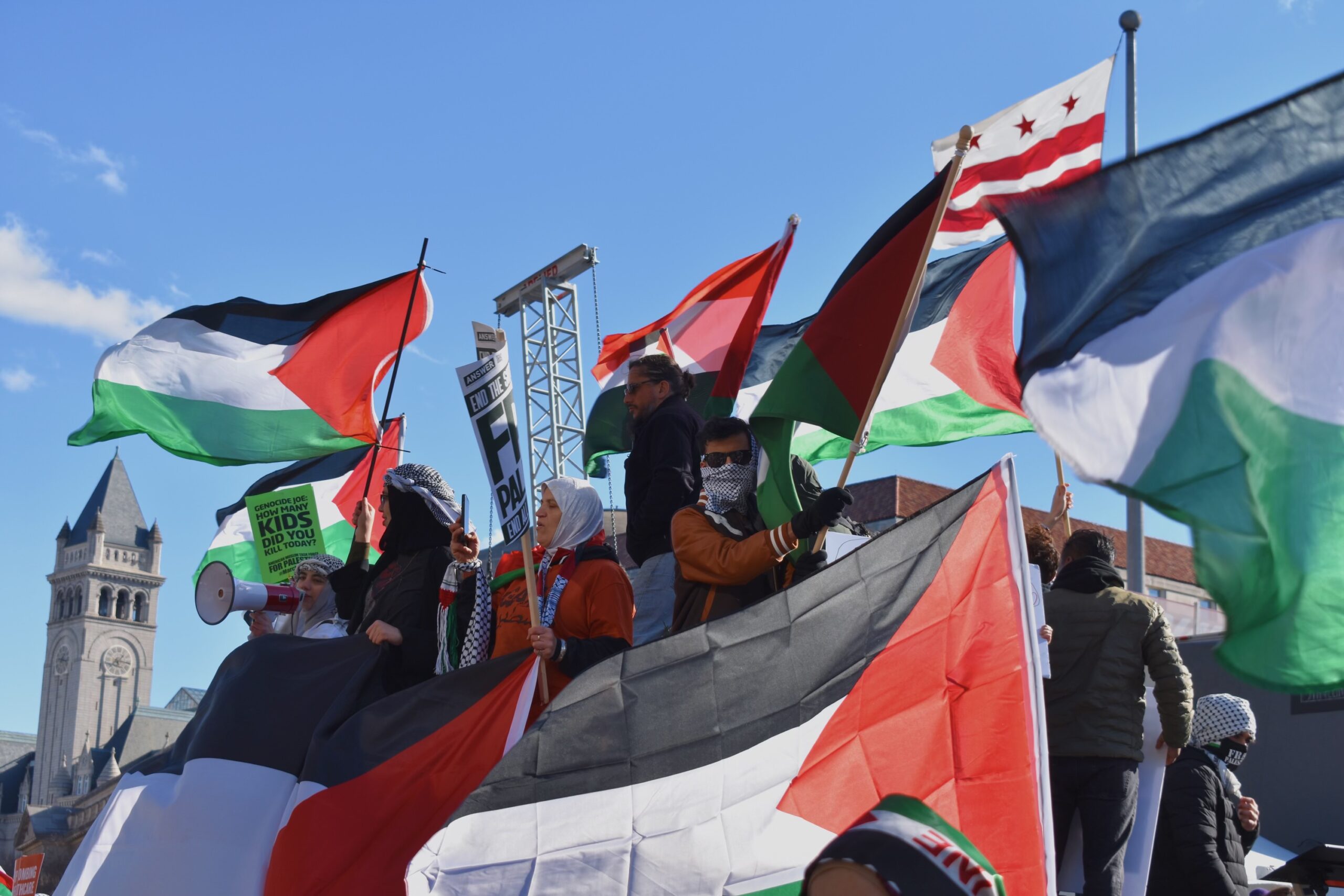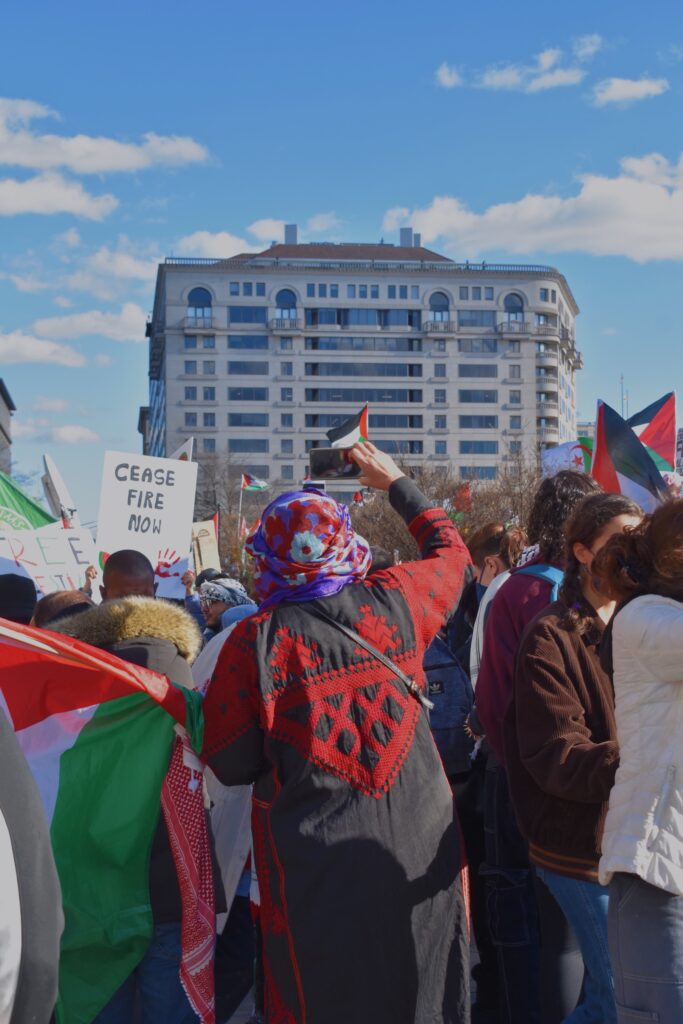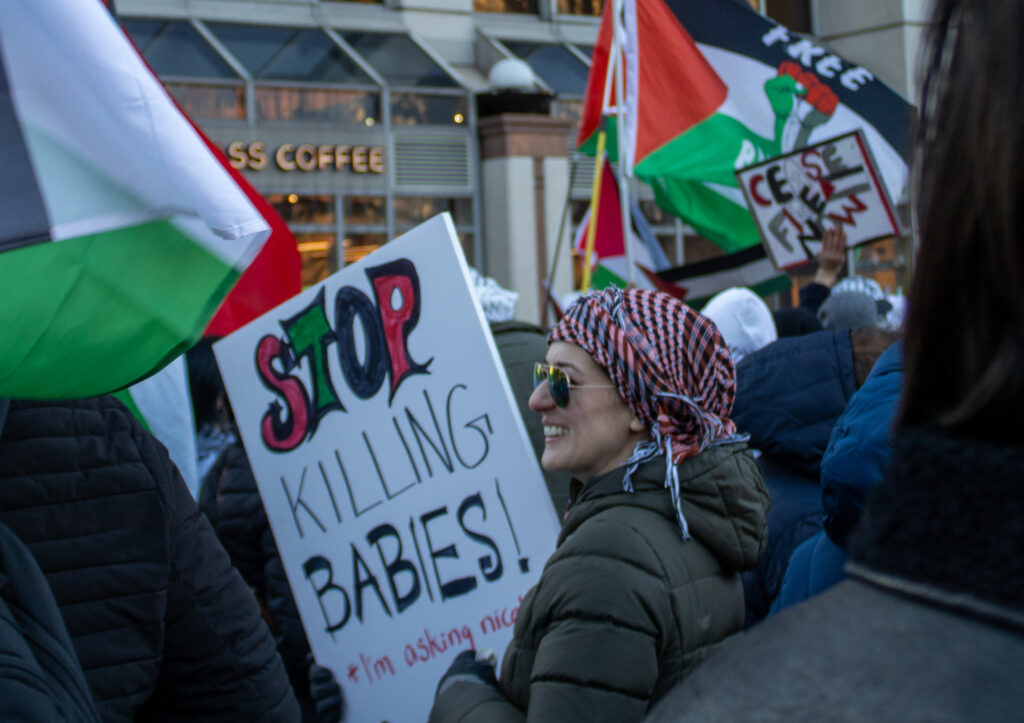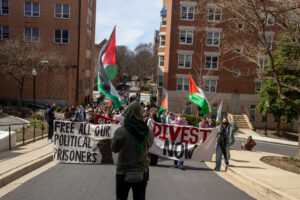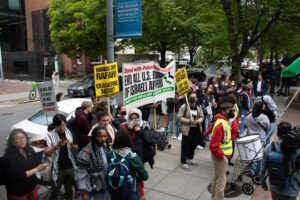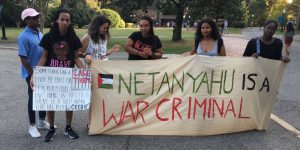A united “Free, free, Palestine!” shook Washington, D.C.’s Freedom Plaza on Jan. 13 as thousands gathered to demand an end to Israel’s genocide in Gaza. Organized by the American Muslim Task Force for Palestine and affiliate groups, the March on Washington for Gaza joined marches in London, Paris, Rome, Milan, Dublin, and other cities around the globe.
Students from Georgetown University Students for Justice in Palestine (SJP) and other independent student organizers led multiple groups of Georgetown undergraduates to the march, leaving only standing room on the packed bus. They joined tens of thousands of fellow protesters, with some outlets reporting well over 100,000 participants. The rally and march is the second in the U.S. capital since the renewed Israeli bombardment of Gaza began following the Oct. 7 attacks.
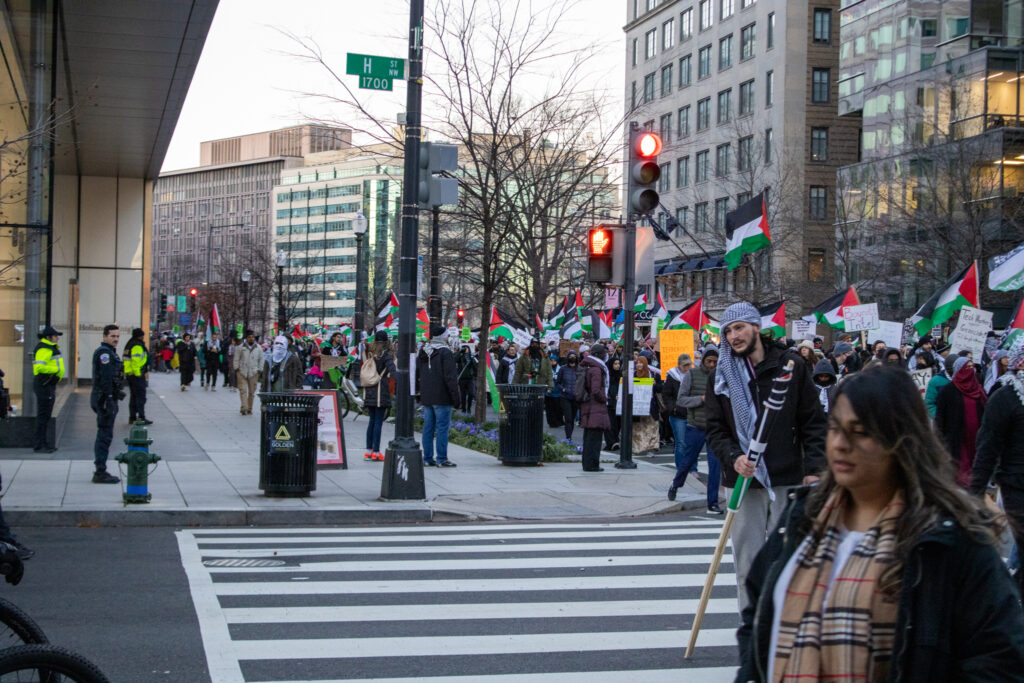
Photo by Connor Martin Thousands of pro-Palestinian protesters marching toward the White House.Photo by Connor Martin
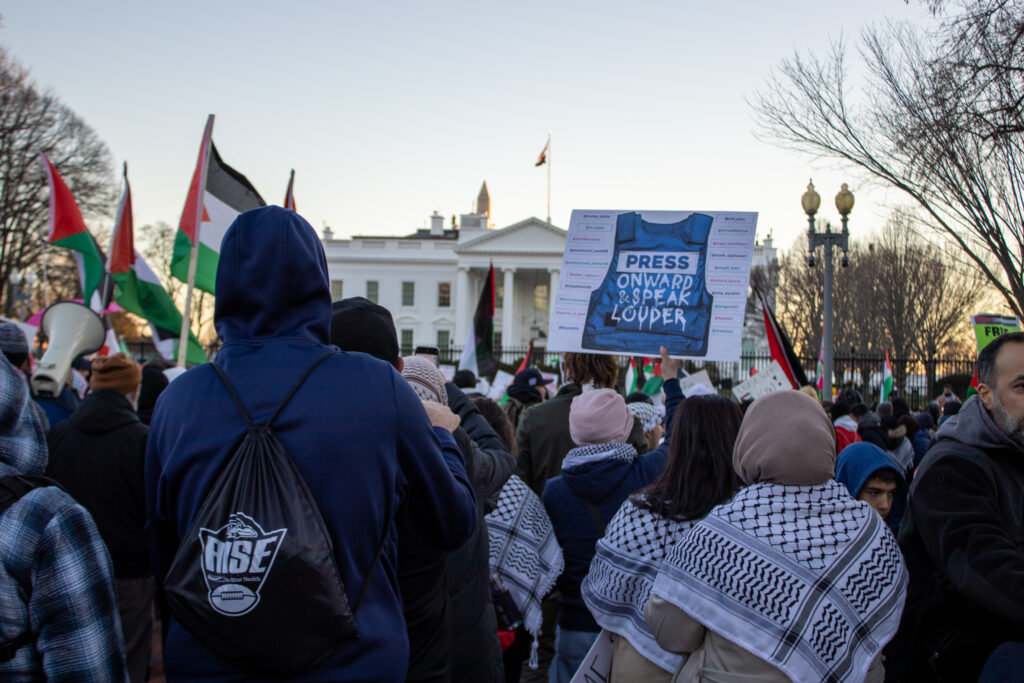
Photo by Connor Martin Participants in the March on Washington for Gaza gathering at the White House.Photo by Connor Martin
As of the date of publication, Israeli attacks have killed more than 26,700 and injured over 65,000 Palestinians in Gaza. Israeli forces have killed at least 367 Palestinians in the West Bank, including 94 children. The protest on Jan. 13 marked 100 days since the start of the Israeli bombardment.
“These marches are for the purpose of calling on humanity to respect the rights and the livelihood of other human beings,” a Georgetown Palestinian undergraduate student told the Voice. The student asked to remain anonymous to protect their own safety.
According to the organizers’ website, the march had three demands: an immediate and permanent ceasefire in Gaza, an end to U.S. funding for Israel’s genocide and occupation of Palestine, and accountability for Israel’s war crimes and continuous violations of international law. Protesters’ signs echoed these demands as well.
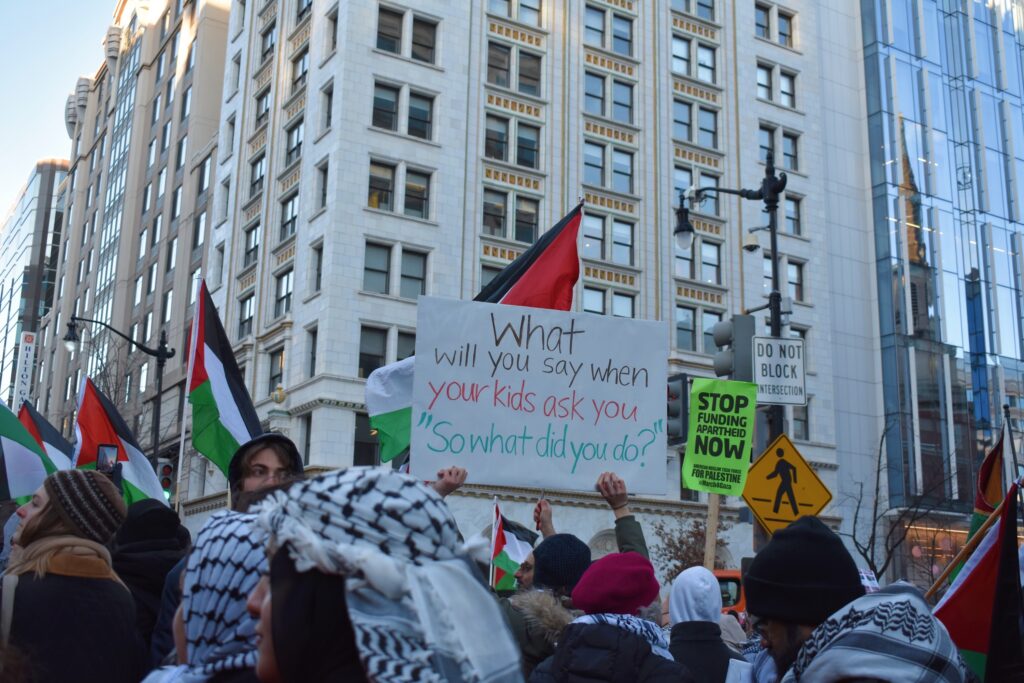 Photo by Grace Nuri
Photo by Grace Nuri
The march started at 1 p.m. with nearly three hours of speeches from organizers, activists, politicians, and community leaders.
“Lately, I’ve been finding myself struggling to find those words to meaningfully encompass the depth of my sorrow and my horror and my disbelief in witnessing my homeland’s destruction and the murder of over 100 of my family members,” Laila el-Haddad, a Palestinian journalist, author, and public speaker said.
Even amidst freezing temperatures in the district, the crowd listened to and interacted with speakers. Harun Rashid, president of Muslim Ummah of North America, spoke about the indiscriminate destruction in Gaza.
“Israel’s government has been and is bombing hospitals, schools, shelters, churches, mosques, residential buildings, and all forms of infrastructure, including UN facilities,” Rashid said. “They are killing doctors, nurses, journalists, everyone, anyone, including U.N. officials.”
“It is war crime,” Rashid said.
Next Dr. Mohsin Ansari, President of Islamic Circle of North America, highlighted the responsibility the U.S. has for the suffering in Gaza. “Americans, what will you say to those who cut off the oxygen for 500 babies? What will you say to those who killed 437 doctors?,” Ansari said.
Al Jazeera journalist Wael al-Dahdouh, who lost his wife, three children, and grandson to Israeli bombing, spoke via videolink about the lack of basic essentials for Gazan civilians and the high number of journalists killed in the genocide. More than 83 journalists and photographers have been killed by Israeli attacks in the last 3 months, a number greater than all the journalists killed in the 20-year-long Vietnam War.
“The Palestinian journalists in the Gaza Strip are exposed to a massacre, if we speak truly. A slaughter, if we speak honestly,” al-Dahdouh said.
Coming from a diverse array of backgrounds, the speakers emphasized the humanitarian importance of ending the genocide in Gaza.
“We want the world to know that because we are Jews—true to the Torah—we are crying and hurting with the people of Gaza,” Rabbi Yisroel Dovid Weiss, spokesman for Neturei Karta, a Haredi anti-Zionist group said.“It is antisemitic what the Zionist state of Israel is committing: their crime, their occupation, their slaughter of Gaza.”
The speeches ended at 3:50 p.m, and then the crowd, composed of district residents and travelers from all over the U.S., marched toward the White House. For Palestinian Georgetown students, seeing widespread support from students of all backgrounds was encouraging.
“It’s not just like Muslims that are there. It’s not just Arabs that are there because it’s never really been an ethnic-religious issue,” a second Palestinian student told the Voice on the condition of anonymity.
The diversity of protesters at the march reflects growing popular support for Palestine, particularly among younger Americans. Nearly three quarters of voters between 18 and 29 years old disapprove of the way President Biden is handling the conflict, according to a New York Times/Siena College poll. According to Palestinian students at the march, calls for a permanent ceasefire should come from all Georgetown students and faculty, especially those in the School of Foreign Service.
“I think that it’s really hypocritical and naive to be a student in the School of Foreign Service and think that humanitarian causes are conditional and that you can pick which ones you would like to support,” the first Palestinian student said. “I think that that’s just the antithesis of what it means to be in a community that works in service for others as, you know, Georgetown prides itself on.”
Palestinian students are also frustrated with how their peers perceive the issue as overly complex and thus avoid talking about it.
“I think once people start framing it like it’s complicated or too sensitive and they stop talking about it is when it starts becoming even harder to get activism and change public opinion,” the second Palestinian student added.
The tens of thousands who showed up in Freedom Plaza and at the White House spotlight the power of the movement. Still, SJP, and other organizers’ are aware of the enormity of the work ahead of them as Israel’s genocide in Gaza enters its third month.
“Even though there are human stories, human narratives, coming out of Gaza, we still have to fight this hard,” the first Palestinian undergraduate said.
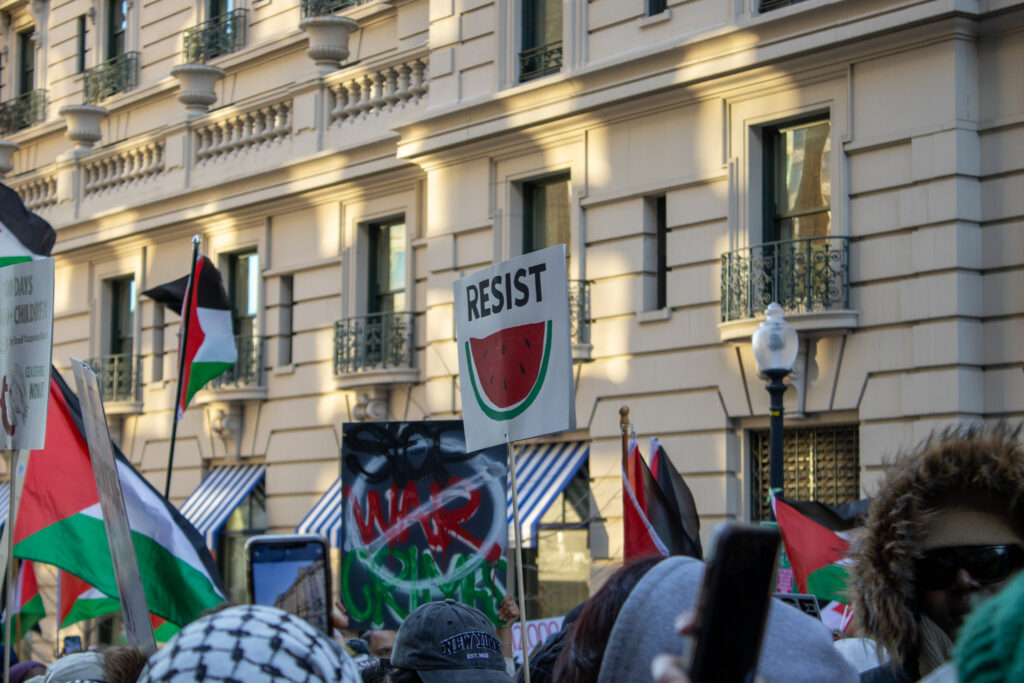
Photo by Connor Martin Marchers holding up Palestinian flags and signs, including one with a watermelon slice and the word “resist.”Photo by Connor Martin
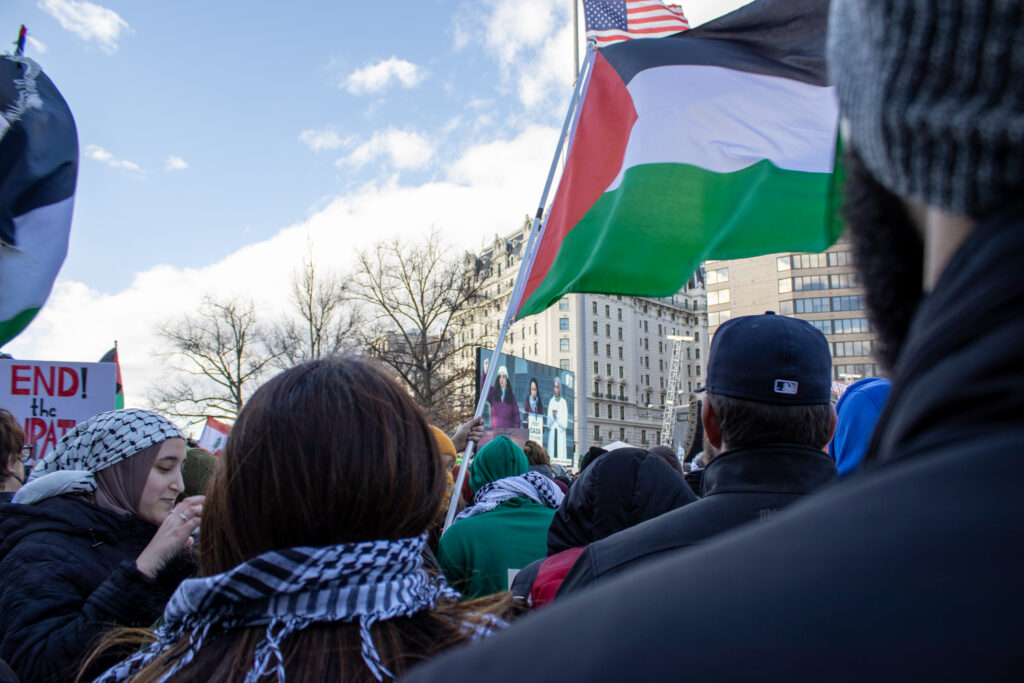
Photo by Connor Martin The crowd listening to speeches in Freedom Plaza.Photo by Connor Martin
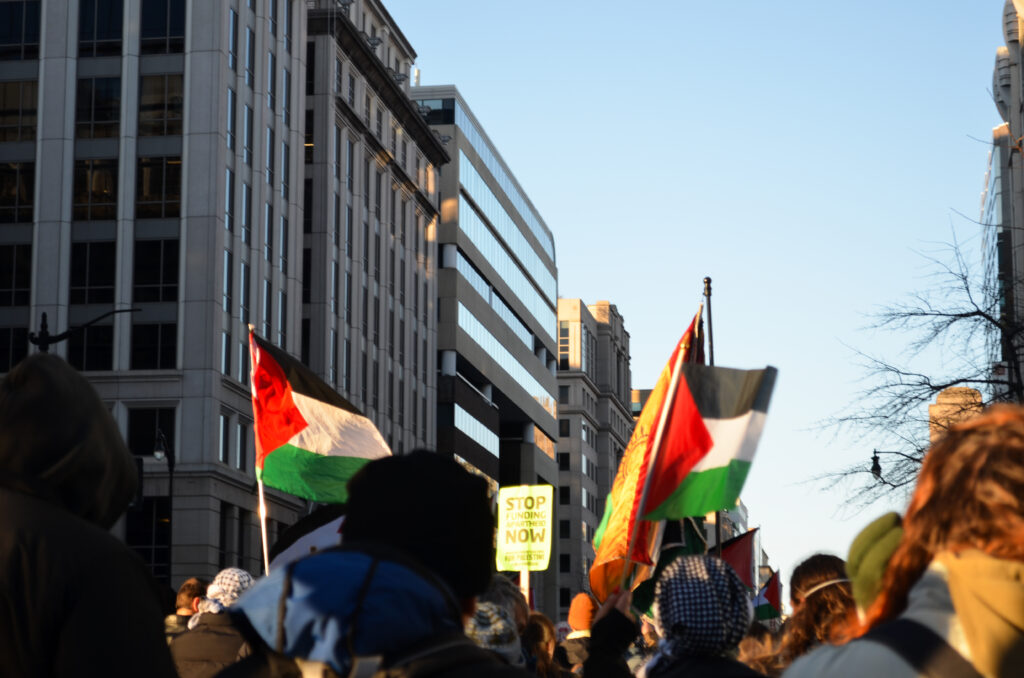
Photo by Sabrina Shaffer Marchers holding up Palestinian flags and a sign that reads, “Stop Funding Apartheid Now.”Photo by Sabrina Shaffer
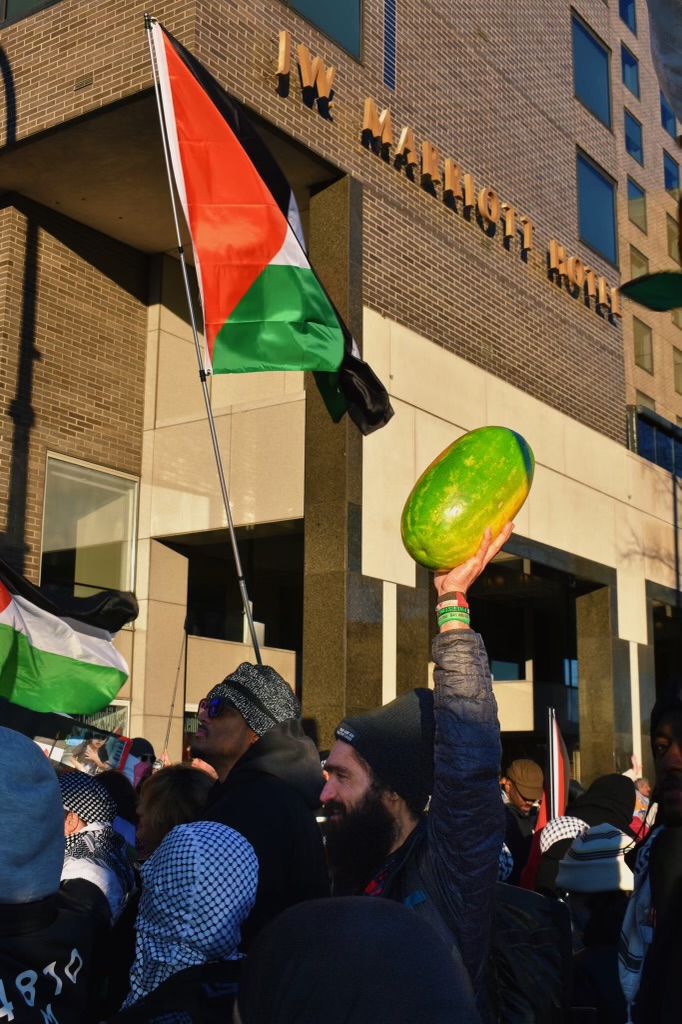
Photo by Grace Nuri A man holding up a watermelon during the march to the White House.Photo by Grace Nuri
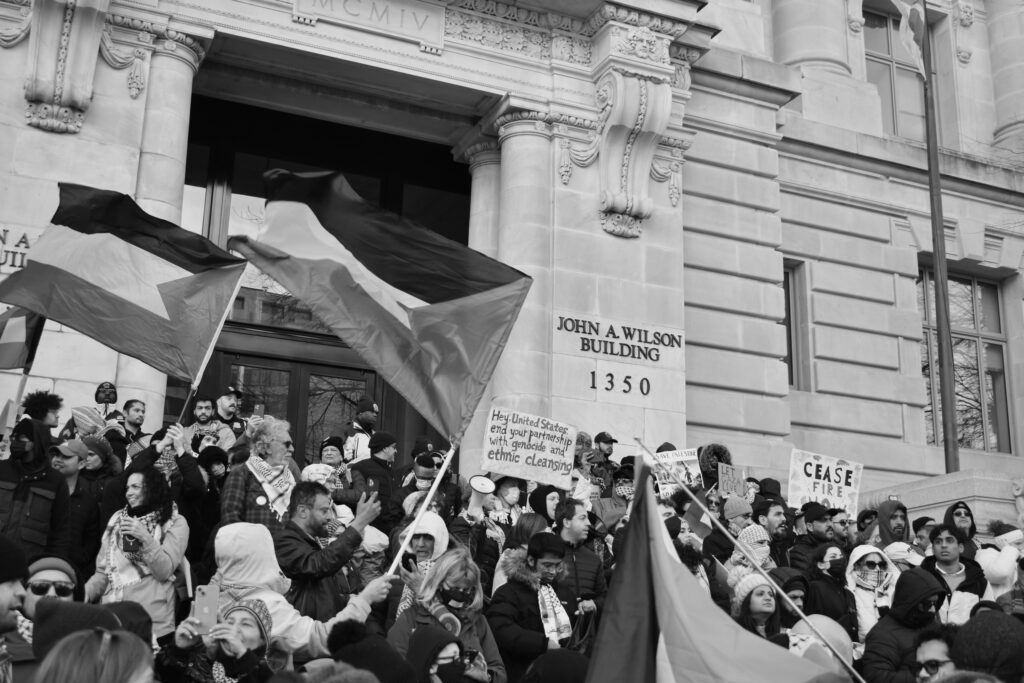
Photo by Grace Nuri Protesters on the steps of the John A. Wilson building in Freedom Plaza.Photo by Grace Nuri
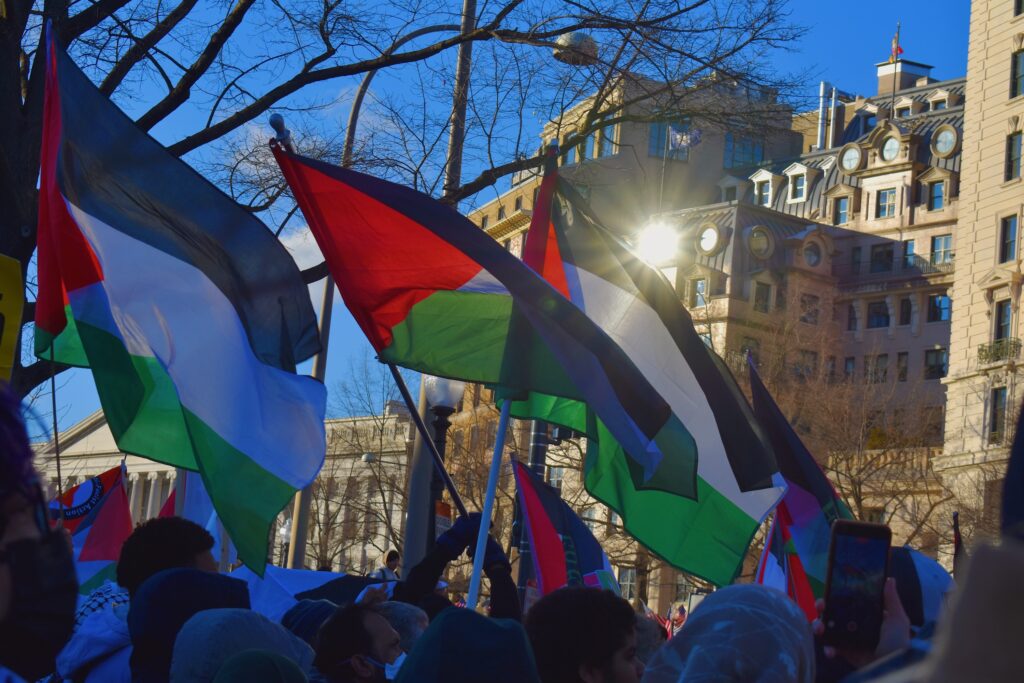
Photo by Grace Nuri The sun reflecting through three Palestinian flags.Photo by Grace Nuri
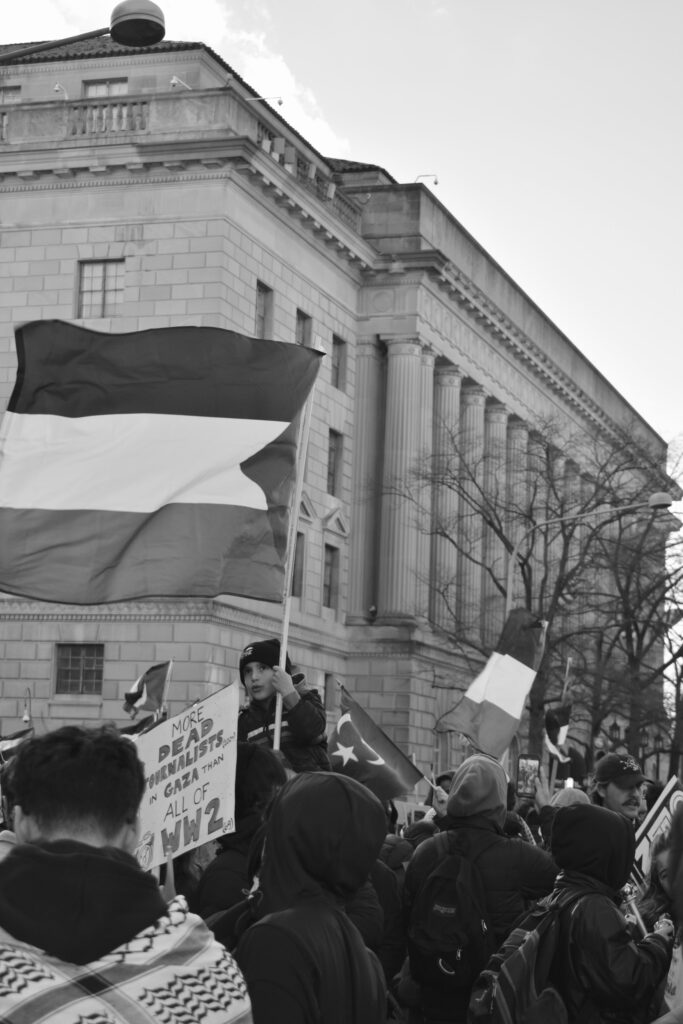
Photo by Grace Nuri A child holding up a sign reading, “More Dead Journalists in Gaza than all of WW2.”Photo by Grace Nuri


